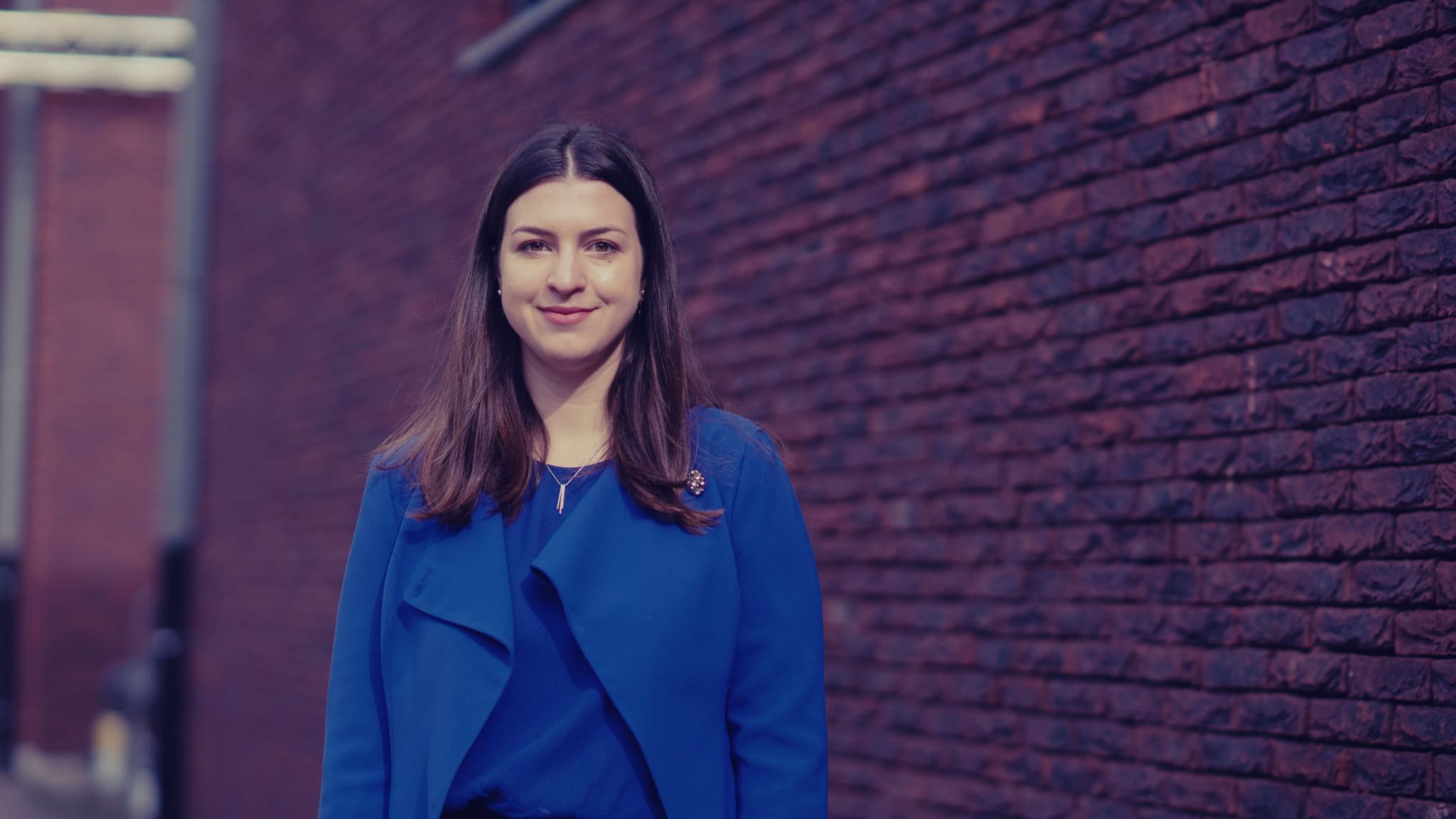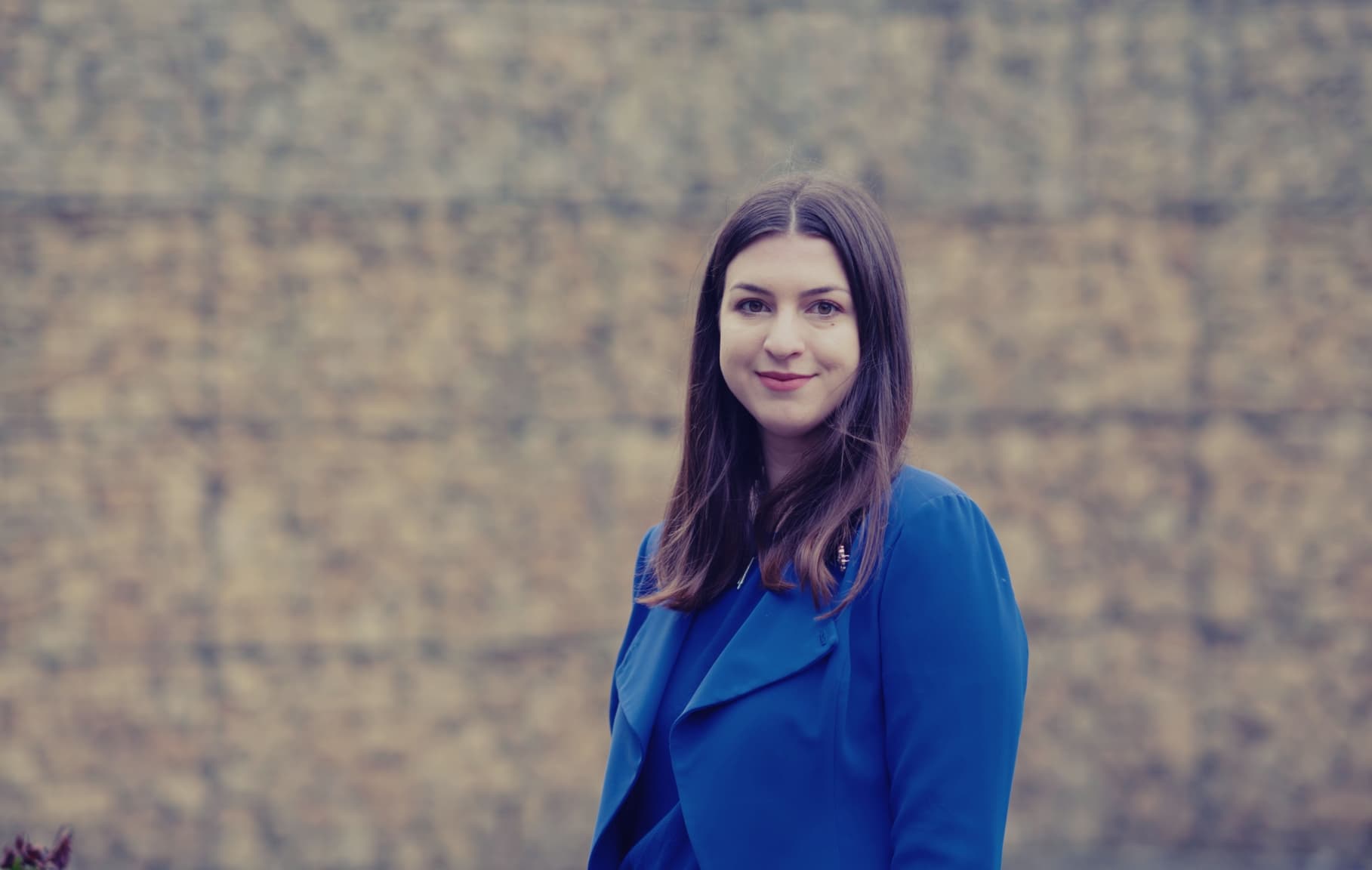Although Iva Popova’s job at imec is her first work experience, she’s been in Belgium for quite some time. After finishing high school in Bulgaria, she moved to Leuven to study industrial engineering at KU Leuven. Six years later, of which one and a half at imec, she reflects on the cultural differences between Bulgaria and Belgium.
Whereas many people would be scared to move to a new country, Iva only felt curiosity. With an aunt living in Belgium and some KU Leuven leaflets containing basic information, she left for a country three times smaller than Bulgaria to study an international bachelor’s program. Once there, her Flemish roommates praised her courage and admired her relaxedness. Nevertheless, moving came with its own challenges, surprises and opportunities.
Living in a trilingual country
Having newly arrived in Leuven, Iva set about to rent a room. Unfortunately, though, her landlord turned out to be in his seventies and only spoke Dutch. With some basic Dutch knowledge, Iva did her best to ask questions, but the answers were so complicated that – in the end – they had to turn to Google Translate. This immediately highlights one of the main integration challenges Iva experienced in Belgium: its three national languages. Even if she now studies Dutch, she realizes that if she ever were to move to Wallonia or Brussels, she’d have to start all over by learning French.
An organized country
Despite Belgium’s multilingual character, the thing Iva would miss most if she were to move again would be the way things are organized in Belgium. As a resident, for instance, you can make an appointment at the city hall for your passport and be done in 15 minutes. You’re also obliged to recycle by purchasing and using different rubbish bags. In Bulgaria, there’s a different approach: you’re forced to queue in the city hall for several hours and many people don’t see the point of recycling. Aside from these aspects, Iva is positively surprised by the Belgian biking infrastructure and public transport (aspects you’ll only hear Belgians complain about). Delays exist but the connections in Bulgaria are not as numerous and it’s much harder to get around without a car.
Surprising situations
That being said, Belgium manages to take Iva by surprise on some occasions. When she had just moved to Leuven, for example, she hated the gloomy autumn and winter skies, which stood in stark contrast to the blue Bulgarian skies. She also wasn’t prepared for shops to be closed at 6 pm and on Sundays. So should you ever want to go on a shopping trip, she can really recommend Bulgaria, where shops are open until 10 pm. But if you do, remember that cheek kisses are not common practice in Bulgaria; it might be safer to opt for a handshake or a hug if you don’t want to shock the locals.

A different mindset
Apart from these practical aspects, Iva notices differences between the countries’ residents. Whereas Bulgarians have a collectivistic mindset – reflected in their friendliness and openness towards others – Belgians tend to be more reserved. So much so that Iva and her international friends have come up with a theory for this: Belgium’s size makes it easier for Belgians to remain connected with friends and family, so they’re less inclined to make new international friends. These personality differences are also reflected in the way Iva describes the two countries. On the one hand, she associates Bulgaria with family, nature, and comfort. Belgium, on the other hand, represents possibilities, multiculturalism, and professional and personal development. As such, it becomes clear that there’s a home-career division in Iva’s mind.
“People typically think of Eastern European women as cleaning ladies but 52% of Bulgarian women are scientists and engineers.”
Finding a job during a pandemic
When asked about the work culture in both countries, Iva hypothesizes that Belgians are more eager to embrace new responsibilities. As a result, she believes that living in Belgium has offered her opportunities that wouldn’t have presented themselves otherwise. Even though she started working at imec in the middle of a global pandemic, she feels her work is recognized. Of course, starting her first job during an era of lockdowns meant she felt less connected with the company for a while. It took her, for example, six months to meet most of her colleagues in person (with all the usual post-teleworking surprises: people with different hair colors, mustaches, etc.). However, since the pandemic is part of history now, she feels she has truly become part of the imec team.
Bulgarian festivities at imec
Ultimately, Iva is glad to be a part of a company that values cultural diversity. She’s not aware of any Bulgarian traditions being celebrated at the imec offices but suggests two excellent candidates. On Christmas Eve, the 24th of December, for instance, Bulgarians prepare and eat nine vegetarian dishes. During the Easter period, they also color large quantities of eggs (10 per person, according to Iva’s grandmother). Should imec ever organize these Bulgarian festivities, it’s safe to say Iva will be present to meet fellow Bulgaria enthusiasts.
More about these topics:
Published on:
22 March 2024













